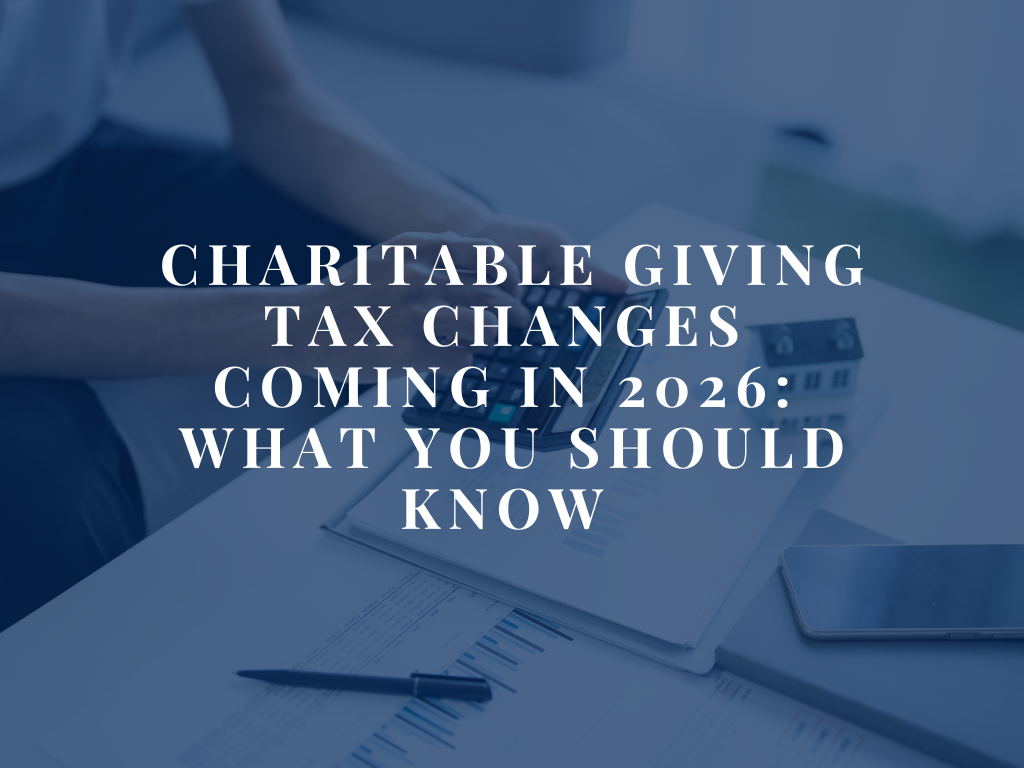From a seasonal perspective, March is not typically known for any major changes in market dynamics. The month is often quieter with tax season emerging, earnings season’s completion, and investors analyzing early-year market direction. Despite the lack of obvious activity, several meaningful developments are unfolding that warrant our investment team’s attention.
Monthly Market Commentary: March 2026
Digital Assets and Estate Planning: What Families Need to Know
Wills, beneficiaries, physical property, and financial accounts: the basics of what most people think about when it comes to estate planning. But as more of our financial and personal lives exist behind login screens instead of paper files, digital assets that hold real value are often overlooked.
Cloud storage, cryptocurrency wallets, airline miles, online marketplaces, and subscription services have introduced a new planning challenge that many families are not fully prepared for: what happens to those digital accounts after death or incapacity?
Topics: Financial Planning
Understanding Your Cash Flow: The First Step to Financial Success
The first quarter of the year is an ideal time to get your finances in order. Whether because it made your New Year’s resolution list or because financial tasks got pushed aside last year, this is a natural time to take stock. If you’ve never created a financial plan, now is an excellent time to start. And if you already have one in place, it’s a good opportunity to update it and see where things stand.
Topics: Financial Planning
Fixed income can play a critical role in a well-constructed investment portfolio. While equities are typically the primary driver of long-term returns, fixed income serves a different purpose: risk management.
Our philosophy is straightforward. Fixed income should act as a true hedge against equity market volatility while also providing a predictable level of income. It is not intended to be the engine of growth in a portfolio. That responsibility belongs to equities. This distinction matters because fixed income investments have an inherently asymmetrical payoff profile.
Topics: Investment Management
Monthly Market Commentary: February 2026
The new year is off to a brisk start, and January has already delivered signs that 2026 may diverge meaningfully from last year’s narrow, tech‑driven rally. Value stocks are leading the way so far, while policy developments from the Trump Administration continue to shape economic headlines. Although it’s still early, we’re closely watching a clear shift in market dynamics to begin to take hold.
How Market History Can Help Frame Your Expectations for 2026
After several years of strong market performance, it’s natural for investors to wonder what comes next.
Will this continue?
Are we due for a downturn?
What should investors realistically expect in 2026?
Let’s not pretend that not even the best analysts and researchers can look into the future and tell you exactly what markets will do next year. But what we can do, and what can offer both clues and confidence, is investigate the past. History offers something far more useful than predictions: perspective.
Let’s explore some valuable insights and patterns from the past that might help frame more realistic expectations for 2026 and better prepare investors to respond thoughtfully to whatever this year brings.
Topics: Investing
Documents and Information Your Family Should Have If Something Happens to You
Most people seem to avoid this topic, not because they don’t care, but because they don’t know where to start. However, having the right documents and details organized ahead of time can remove a huge amount of confusion and emotional strain later.
This article outlines the essentials. For help organizing everything in one clear place, download our free guide. This is not legal advice, and it’s not about drafting documents. This checklist is about making sure the right information exists and can be found when it matters most.
Topics: Financial Planning
When Money Changes Overnight: Preserving and Growing Newfound Wealth
Last month, many found themselves entertaining fantastical “what-if” scenarios should they beat the odds and pick the winning Powerball numbers. Despite the low likelihood of suddenly becoming a billionaire, many will spend more time considering such an outcome than they will thinking about the more realistic scenarios that can result in receiving a windfall. Benjamin Connard, CFA, Principal of Carnegie, discussed this very thing with Fox5.
Whether from an inheritance, the sale of a business or property, a divorce settlement, or insurance proceeds, a sudden influx of wealth can be life changing. While the opportunities are substantial, so are the complexities. Many individuals find themselves unsure of where to begin, what questions to ask, or how to make thoughtful decisions during what is often an emotionally charged time.
Topics: Financial Planning, Wealth Management
Charitable Giving Tax Changes Coming in 2026: What You Should Know
Starting January 1, 2026, several federal tax law changes will affect how individual donors can deduct charitable contributions.
Whether you itemize or take the standard deduction, these new federal tax rules will affect how your donations are treated, potentially changing when, how, and how much you give. From a brand-new deduction for non-itemizers to updated limits for high earners, understanding what’s ahead can help you make the most of your generosity.
Here’s a breakdown of what’s changing and what you should consider before and after the new rules take effect.
Topics: Financial Planning, Taxes
Monthly Market Commentary: January 2026
As we embark on 2026, we at Carnegie reflect on a resilient 2025 that saw the S&P 500 deliver solid gains amid headwinds such as tariffs and government budget cutbacks. The market tested many investors through sharp headlines portraying market news and pullbacks as dramatic declines, such as "Dow plummets 500 points," often representing less than 1% moves.
Our take? Headline-driven commentary is designed to elicit an emotional response (to drive clicks!), but it is often the best time to remember your time horizon. Over longer horizons of 1, 5, or 10 years, these fluctuations pale in comparison to the power of compounding in quality investments. At Carnegie, we remain focused on identifying continual compounders striving to build wealth steadily through economic cycles.
As we enter 2026, maintaining discipline amid noise remains key, emphasizing long-term horizons over reactionary moves. Below, we share a few larger themes we are watching as we turn the page on 2025.


.png)
.png)
-1.png)


.png)
.png)


